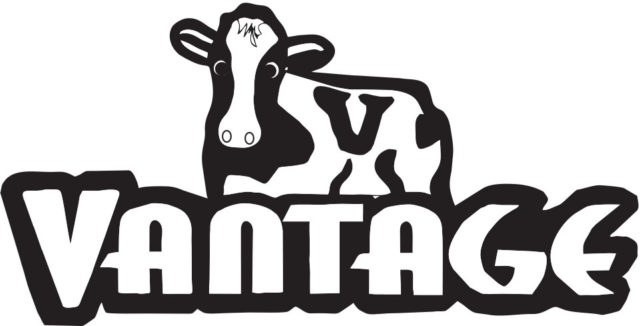One of the fastest-growing areas of agricultural mediation, and one which is provided at no cost to the Idaho farmer, is the resolution of the question of farm succession within a family. In other words, what happens to my farm when I am no longer able to continue operating it? If not planned for in advance, this issue can create family conflicts and even future legal issues. An orderly mediation process can lead to an orderly transfer of assets, management and the knowledge and ability of keeping the family farm within a family structure without the stress of last-minute legal and family conflicts.
The issues leading to conflicts in farm succession break down into differing ideas of goals, styles, resources and values. Those are compounded by the overlapping systems of “family” versus “business.” While the family structure may be emotion-based, inward-looking and one that minimizes change, the business system is outward-looking, fact-based and one that must face change to survive. A farm succession plan must balance these two systems and allow both the farm business and the family structure to continue successfully into the next generation.
The demographics
The USDA Economic Research Service (ERS) reports that 98% of all farmers in the U.S. meet the definition of a family farm; that is any farm in which the majority of the business is owned by the operator, and individuals relate to the operator by blood or marriage, including relatives who do not reside in the operator’s household. The average age of farmers today is 58 years old. There are twice as many farmers over the age of 65 years as there are under the age of 35. The age of landowners is even older, with 77% of agricultural land owned by someone 70 years old or older.
Additional relevant facts reveal that for the next 10 years 10,000 baby boomers will turn 65 every day, only 27% of farms have identified a successor, 75% of farmers say they will never retire (or they may semi-retire) and finally, less than 10% of America’s 91.5 million acres of farmland will transfer ownership in the next five years. With that information, farm families are confronted with the question of what should farm assets be: Are they retirement assets, business assets or inheritance assets?
The problem and the mediator
As stated, the biggest difficulty in developing a business succession plan is the separation of the business from the family. This is especially true when several generations have worked together for many years. Expectations and assumptions are made and remain unspoken and unwritten. Many farm owners, farmers or potential successors know planning is necessary, but they do not know where to start or are hesitant to give voice to the unspoken assumptions and expectations because they fear such a discussion would create family conflict. It is then not unusual for them to contact a trusted adviser for assistance. When this happens, the role that actually needs to be filled should not be that of a “trusted adviser,” but rather that of a facilitator, coordinator and mediator.
A mediator/facilitator can guide and coach the farm business/family through a process that helps the participants gather information, consider options and make decisions. The mediator/facilitator can be objective at the table, can ask the difficult but extremely important succession questions, and manage the process. While the issue of farm succession may be overwhelming to many families, the trained mediator/facilitator is the person responsible for asking the questions:
- Where is the farm now?
- Where do you want it to be?
- And, most importantly, “How do you get there?”
Once answered, those involved in the farm business are responsible for the decisions and the final outcomes of the process.
The 10-step process
Farm-business succession planning just doesn’t happen. Producers must intentionally focus on planning and work with a team of professionals coordinated by one individual. To make this time with professionals more worthwhile and lead to better outcomes, farmers must first do some homework. The following items outline things that farmers can do as they prepare for succession planning. The mediator/facilitator will then be able to keep everyone on track and accountable when working through these steps.
Organize information – What does each generation own and owe? Gather all assets.
Develop and discuss intentions – Do the successors’ priorities match that of ownership?
Evaluate your communication skills – Are you a good listener and do you want to talk now?
Analyze farm business financials – How is the farm cash flow, is there liquidity, is it profitable?
Estimate family living needs – Who lives where, and what does the farm support?
Develop management transition plan – How long is the owner generation to be in charge?
Create a timeline – Provide a framework and target dates for transferring assets.
Develop and discuss estate plans – Is there a will or other tool to bring about the transfer?
Consider fair versus equal for inheritance – Does continuing the farm outweigh equal distribution?
Evaluate long-term care needs – Is there a plan to age in place as the family members age?
Fair versus equal
An overriding issue often leading to conflict within the family is the concept of judging what is “fair” and what is “equal” in the succession plan. Equal distribution places an emphasis on treating everyone the same. Fair distribution focuses on the perception that the transfer of property should be made on a “just” system. Research indicates that higher levels of conflict are predicted when siblings have different rules of fairness, and when siblings have not been close in terms of location, emotional ties or their commitment to the farm.
Often this potential for decisive decision-making may be mitigated by fostering positive communication during the succession planning process. In many cases, the issue of “sweat equity” and the application of the term leads to the determination of whether something is “fair” or “equal.”
Conclusion
The issue of family farm succession in the state of Idaho is one of ever-increasing importance. The addition of a mediator/facilitator is an addition that is welcomed by members of the entire family. It provides for a system whereby a professional is there to provide impartial, engaging coordination to one of the most important decisions made by an aging family. The addition of this professional allows for the development of a plan designed by the members of the family, created by their combined philosophies, and on a timeline of their choosing.
The Idaho USDA Certified Mediation Program provides for this service to be free to all farm families in the state of Idaho. Should you have any questions about the process, or if you believe that it may be time to begin a succession program, please contact Gayle Cooper, Idaho Certified Mediation Program coordinator.
Next month: Grazing permit mediation in Idaho







